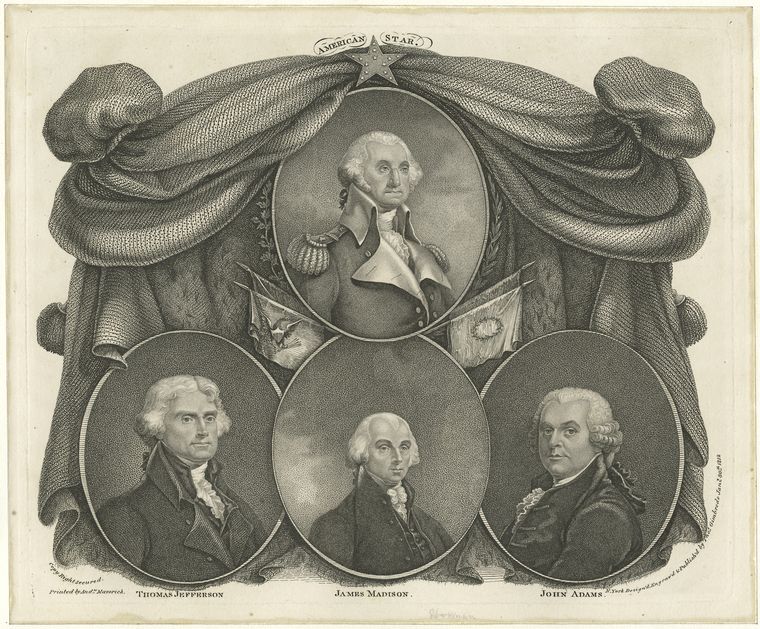
TOPIC
In 1789, the American presidency was brand new. Conceived less than two years earlier in a small room by a small handful of disputatious men in Philadelphia, it fell to the earliest holders to define the office. Despite George Washington’s unanimous election, he nevertheless experienced a number of turbulent moments in his administrations. John Adams, his successor, found himself the holder of an office that had, in many ways, been created for Washington. He also faced the challenge of navigating the party politics that had begun developing during Washington’s time in office. As the third (and first non-Federalist) president, Thomas Jefferson faced the challenge of being the first modern-day head of state from an opposition party to accede to the office peacefully. Would he throw out everything that had come before? Would he set out to completely redefine the office? Each of these men had to navigate unique domestic and geo-political circumstances. They also came up against the limitations of the office and each responded differently. In effect, the presidency was being created in these early years of the republic and those political circumstances played a significant role in shaping what the presidency would ultimately become.
QUESTIONS
- How was the office of the President conceived and perceived by early Americans?
- What role did George Washington play in the defining of the presidency?
- How important was the office of the President to politics in the early republic?
- What was the “republican court?”
- What were some of the key moments in the first three administrations?
- How did the administrations of Washington, Adams, and Jefferson differ?
- How does the presidency now differ from the office in the late eighteenth century?
- How do we remember our earliest presidents and what roles do historical sites play in that memory?
SUBSCRIBE
As always, you can subscribe to “The JuntoCast” in iTunes or via RSS. The JuntoCast is also available on Spreaker, and recent episodes are also available at SoundCloud and YouTube.
FURTHER READING
Chernow, Ron. Washington: A Life. New York: Penguin Press, 2010.
Edling, Max M. A Revolution in Favor of Government: Origins of the U.S. Constitution and the Making of the American State. Oxford University Press, 2003.
Elkins, Stanley M., and Eric L. McKitrick. The Age of Federalism. New York: Oxford University Press, 1993.
Ellis, Joseph J. American Sphinx: The Character of Thomas Jefferson. New York: Alfred A. Knopf, 1997.
–– –– ––. Passionate Sage: The Character and Legacy of John Adams. New York: Norton, 1993.
Ferling, John E. Setting the World Ablaze: Washington, Adams, Jefferson, and the American Revolution. Oxford: Oxford University Press, 2000.
Moats, Sandra. Celebrating the Republic: Presidential Ceremony and Popular Sovereignty, From Washington to Monroe. DeKalb, Il.: Northern Illinois University Press, 2009.
Wood, Gordon S. Empire of Liberty: A History of the Early Republic, 1789-1815. New York: Oxford University Press, 2009.